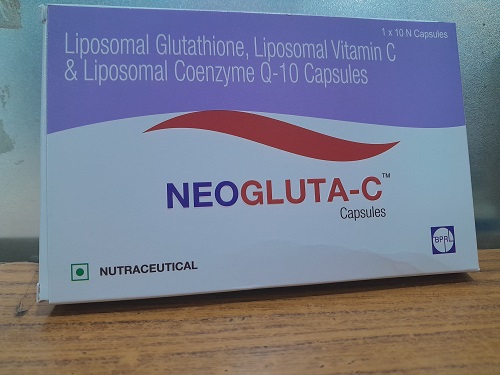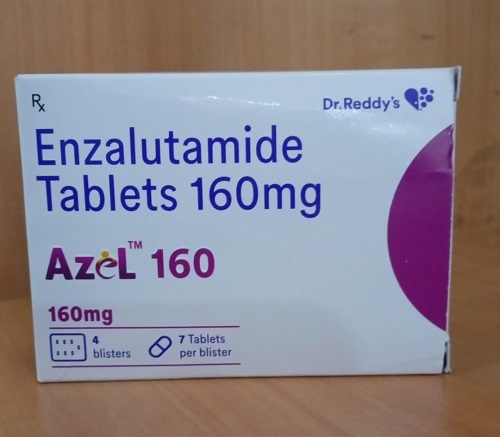Product Introduction:
Lenvat is a targeted anti-cancer therapy belonging to the class of tyrosine kinase inhibitors (TKIs). It is used as monotherapy or in combination with other agents (like pembrolizumab) for the treatment of various solid tumors. The medication is manufactured by Natco Pharma Ltd, an Indian pharmaceutical company recognized for oncology therapeutics.
Uses (Indications):
Lenvat is approved for the treatment of several advanced or metastatic cancers:
-
Differentiated Thyroid Cancer (DTC): For patients refractory to radioactive iodine treatment
-
Hepatocellular Carcinoma (HCC): First-line therapy for advanced liver cancer
-
Renal Cell Carcinoma (RCC): In combination with everolimus after one prior anti-angiogenic therapy
-
Endometrial Carcinoma: In combination with pembrolizumab for advanced disease
-
Soft Tissue Sarcoma (off-label): Under clinical investigation or compassionate use
-
Non-small Cell Lung Cancer (NSCLC): Investigational or off-label in selected cases
Storage Instructions:
-
Store at a controlled room temperature: 15°C to 30°C (59°F to 86°F)
-
Keep the capsules in the original packaging to protect from light and moisture
-
Do not freeze or expose to heat
-
Keep out of reach of children and pets
-
Unused or expired capsules should be disposed of safely as per hazardous drug protocols
How It Works (Mechanism of Action):
Lenvatinib is a multi-targeted tyrosine kinase inhibitor that interferes with several pathways crucial to cancer growth:
-
Inhibits VEGFR1–3 (vascular endothelial growth factor receptors), thereby blocking angiogenesis (new blood vessel formation) which tumors require for growth and survival
-
Inhibits FGFR1–4 (fibroblast growth factor receptors), which are involved in cell proliferation
-
Targets other receptors like PDGFRα, RET, and KIT, which are implicated in tumor progression
-
The result is decreased tumor cell proliferation, suppressed tumor angiogenesis, and enhanced tumor regression
This multi-target approach allows for broad anti-tumor efficacy across multiple cancer types.
Side Effects:
Common Side Effects:
-
Hypertension (high blood pressure)
-
Diarrhea or abdominal pain
-
Fatigue or asthenia
-
Loss of appetite
-
Weight loss
-
Hand-foot syndrome (palmar-plantar erythrodysesthesia)
Serious Side Effects:
-
Cardiovascular complications: including heart failure, arterial thromboembolic events
-
Hepatic toxicity: elevation of liver enzymes, hepatocellular injury
-
Renal impairment: proteinuria or increased creatinine
-
Hemorrhagic events: serious bleeding, especially in the brain or GI tract
-
QT prolongation: can cause serious arrhythmias
-
Gastrointestinal perforation: rare but potentially fatal
Dosage (Typical Recommended Dose):
For Differentiated Thyroid Cancer (DTC):
-
24 mg once daily, taken as two 10 mg capsules and one 4 mg capsule
For Hepatocellular Carcinoma (HCC):
-
12 mg once daily for body weight ≥60 kg
-
8 mg once daily for body weight <60 kg
For Renal Cell Carcinoma (RCC):
-
18 mg once daily (Lenvatinib) + 5 mg everolimus
Note: Doses may be reduced or interrupted based on tolerance and adverse events.
Method of Administration:
-
Take the capsules once daily, at the same time each day
-
Swallow whole with a glass of water, with or without food
-
Do not chew, crush, or open the capsules
-
If vomiting occurs after taking a dose, do not retake — wait until the next scheduled dose
-
Handle the drug carefully; avoid direct contact with broken capsules
Precautions:
-
Monitor blood pressure regularly during treatment – manage aggressively
-
Regular lab monitoring: CBC, liver, and kidney function, TSH levels
-
Use effective contraception – Lenvatinib is harmful to developing fetus
-
Not recommended for use in pregnancy or breastfeeding
-
Exercise caution in patients with cardiovascular disease or GI bleeding history
-
Surgical wounds may heal poorly during treatment — stop therapy 1 week before and after major surgery
Drug Interactions:
-
CYP3A4 inhibitors/inducers (e.g., ketoconazole, rifampicin) may alter Lenvatinib levels
-
Antihypertensives may require dose adjustments due to Lenvatinib-induced hypertension
-
Anticoagulants and antiplatelets: Increased risk of bleeding
-
QT-prolonging drugs: Use with caution — risk of arrhythmias
-
Immunosuppressants (like everolimus): Must be dosed carefully when co-administered
Allergies (Warnings for Allergic Reactions):
-
Rare but serious hypersensitivity reactions may occur, including anaphylaxis
-
Symptoms may include rash, swelling, fever, or difficulty breathing
-
Patients allergic to any components of Lenvatinib should not take Lenvat
-
Discontinue use immediately if signs of a severe allergic reaction appear
Overdose Information:
-
Symptoms may include severe hypertension, diarrhea, vomiting, fatigue, or cardiac issues
-
There is no specific antidote for Lenvatinib overdose
-
Management is supportive, with close monitoring in a hospital setting
-
Seek emergency medical help immediately if overdose is suspected
Missed Dose Instructions:
-
If missed by less than 12 hours, take the missed dose as soon as possible
-
If more than 12 hours have passed, skip the dose and resume the regular schedule
-
Do not take double doses to make up for a missed one
-
Maintain consistency by taking at the same time daily
Additional Notes:
-
Patients should be educated about blood pressure monitoring and reporting symptoms
-
Regular follow-ups are needed to assess for organ function, tumor response, and side effects
-
Patients may require dose modification based on tolerance
-
Keep a log of adverse effects to discuss with your oncologist
-
This medication is part of a high-risk oncology protocol and should be handled with care




